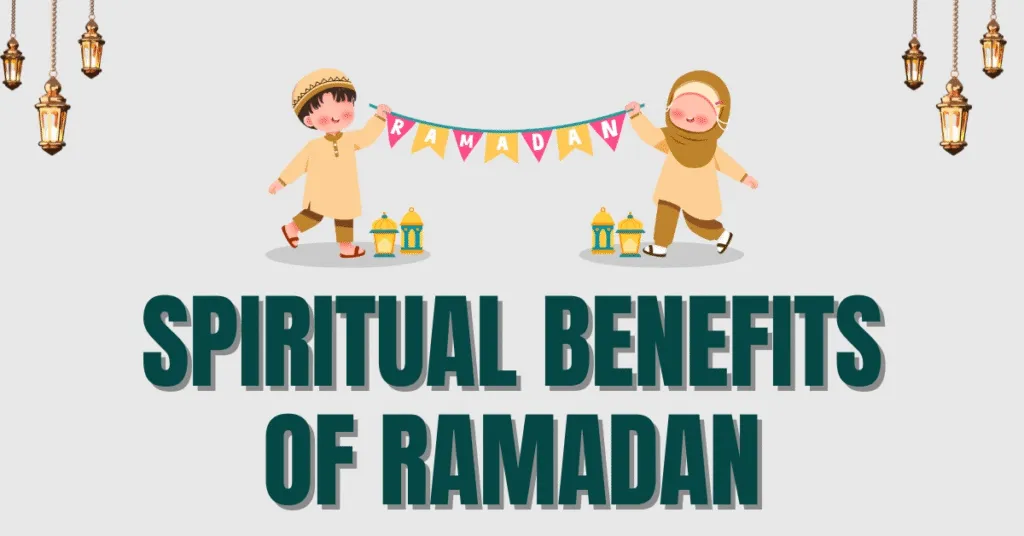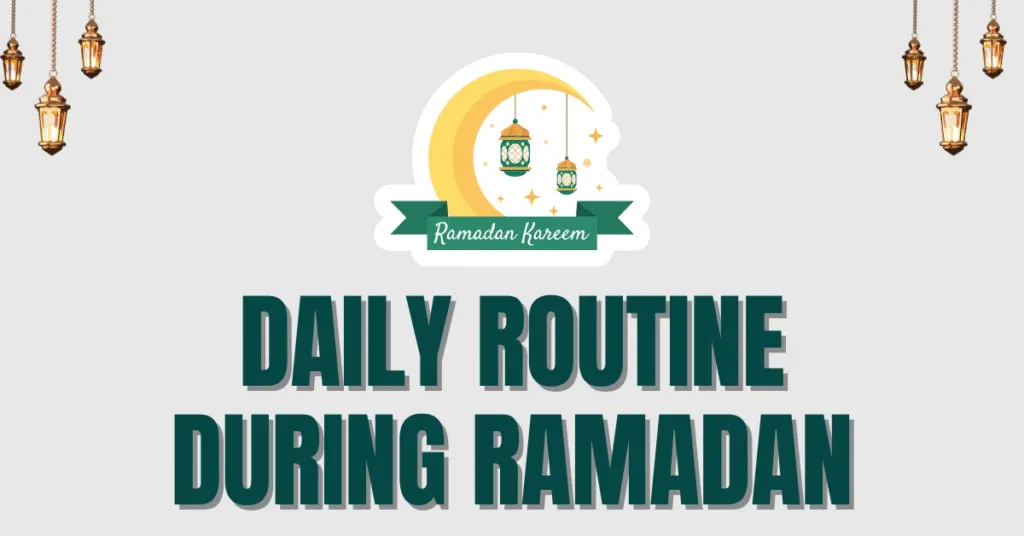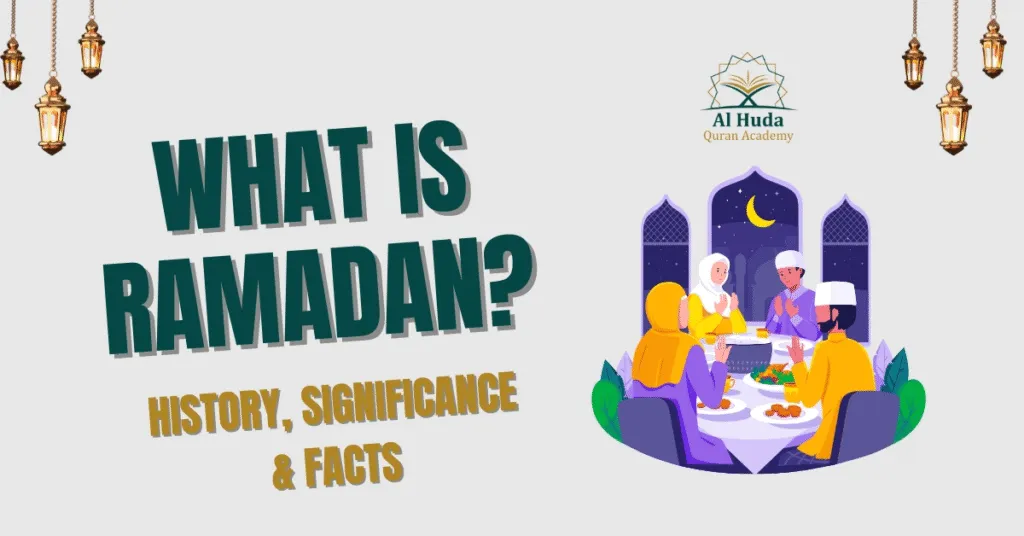Ramadan is one of the most important months in the Islamic calendar which holds great religious significance. Celebrated all over the globe, this period denotes a time of self reflection, self-restraint and intense worship. So what is Ramadan and why is this period so essential to the whole Muslim community?
We’ll answer that question soon, but first, let’s explore the significance, key features, and Ramadan practices that strengthen faith, build community, and inspire compassion. Whether you’re Muslim or simply curious, this guide will help you understand the importance of this sacred month.
The History of Ramadan
Ramadan is a month dedicated to practice fasting, offering prayer and exercising spirituality.
How Ramadan Began in Islam
The roots of Ramadan are closely tied to the fasting customs of the Muslims’ holy book, the Quran. Muslims believe that during the ninth lunar month, Prophet Muhammad (PBUH) received the first Quranic verses through Angel Jibreel, marking The Night of Decree—a pivotal moment in Islamic history.
The Quran mentions fasting in Surah Al-Baqarah (2:183):
“O you who believe! Fasting is prescribed to you as it was prescribed to those before you, that you may attain Taqwa (consciousness of Allah).”
Due to this, Ramadan was designated into a month of increased devotion, salah, and sawm in observance of this heavenly occasion.
Prophet Muhammad’s (PBUH) Observance of Ramadan
For Muhammad (PBUH), both as a prophet and an educator, fasting came naturally. He would abstain from eating and drinking from sunrise until sunset, and he would instruct and motivate his followers to do the same. In addition, he would spend his nights during Ramadan in deep prayer and intense reflection. He also instructed his followers to perform charitable acts but with compassion and love during this month, thus describing its true meaning.
Significance of Ramadan in Islam
It is well understood that abstaining from food and drink during the month of Ramadan reflects strong willpower, commitment, and great mercy in Islam.
Spiritual Benefits of Ramadan

The overarching aim of Ramadan is to improve the faith and devotion of Muslims towards Allah (God). Fasting demands refraining from food and drink for an extended period of time, and requires considerable self-discipline while remembering one’s dependence on Allah. Quran recitation, supplications, extended prayers (Taraweeh) and asking for forgiveness, enables people to enhance their religious consciousness or Taqwa.
Islamic followers and the rest of the world are obliged to remember each other. Through fasting alone, without any other distractions, one is able to concentrate on gratitude and freeing oneself from worldly attachments.
Social and Community Aspects of Ramadan
Empathy and compassion towards fellow Muslims across the globe is developed by Ramadan. The holy month emphasizes on helping other people through Zakat which is almsgiving that is compulsory and Sadaqah which is voluntary giving so that other poor people can benefit in this month.
Joining community work, sharing meals, spending time with friends, and walking with my husband strengthen compassion and togetherness.
The Rules & Practices of Ramadan
Muslims all around the globe marks Ramadan as the month of fasting, praying, and deep contemplation accompanied with reflection.
Fasting (Sawm) in Ramadan
Any form of Sawm fasting is synonymous to the word Ramadan. The fasting is aimed at improving the self-restraint, humbleness and gratefulness of a person.
Who Is Required to Fast?
Fastings in the Month of Ramadan are compulsory to every healthy adult Muslim. Nonetheless, Islam understands not everyone can fast. Exemptions are granted to:
- Children who have not yet reached puberty
- Pregnant, breastfeeding, or menstruating women
- Older people and sick persons
- People travelling or those who are suffering too much
A portion of these persons are encouraged to perform the missed fasts later or as a substitutes offer food to the poor (fidya).
Daily Routine During Ramadan

The schedule throughout Ramadan consists of prayer, worship, and fasting from dawn until sunset.
Suhoor – The Pre-Dawn Meal
Suhoor starts the day on a positive note. This meal is consumed before dawn to get ready for the fasting day in the most efficient manner. It is also an ideal time for an individual to reflect and bolster their mindset physically and spiritually.
Iftar – The Meal to Break the Fast
Fasting is broken at sunset which is known as Iftar. Muslims generally have dates and water to start with as that was how our beloved Prophet (PBUH) broke his fast. Later on, families and friends gather and take a meal together which strengthens the spirit of appreciation and sharing.
Taraweeh – Special Night Prayers
Taraweeh refers to special prayers said other than the five obligatory prayers after Isha, which is the night prayer. Muslims make certain parts of Quran recitations during these prayers so that they are able to further strengthen their connection with the holy book.
The Last 10 Days of Ramadan & Laylat al-Qadr
Ramadan’s final ten days are regarded with more focus on worship where one seeks for the night of decrees or “Laylat al-Qadr” which is certainly better than a thousand months.
The Power of the Last 10 Nights
The final 10 evenings of Ramadan carry deep spirituality. Muslims amplify their worship through intense prayers, Quran recitation, and contemplation because these nights come with the blessings of Laylat al-Qadr.
Laylat al-Qadr – The Night of Decree
Its exact date being unknown, Laylat al-Qadr is said to be among the last 10 nights in Ramadan. It is deemed as the single most productive night for a Muslim, making him able to enjoy it for the duration of a thousand months and to ask for forgiveness while availing opportunities to increase in good deeds and to pray for help and support.
Eid al-Fitr – The Celebration After Ramadan
Upon the conclusion of Ramadan, Muslims acknowledge fiestas del Ramadan or Eid al-Fitr which literally means ‘The Festival of Breaking the Fast’. During this time, special prayers are done together with gift giving and various delectable food, all while spending time with friends and family. Zakat al-Fitr is a donation given to help those not able to enjoy the feast on Eid, and is offered before the Eid prayers.
Important Facts About Ramadan
Some seldom known, these few details can provide astonishing insight about Ramadan:
- Because Ramadan is observed with the lunar calendar, which is 11 days shorter than the solar one, its dates change every year.
- As part of their moral responsibility, Muslims donate millions during Ramadan.
- Even though fasting is at the heart of Ramadan, it is only one of the many deeds done during this month.
A Month Full of Blessings and Reflection
Ramadan is not only about refraining from food; it is also about self-development, community building, and value reshaping. The lessons in tolerance, compassion, and self-awareness developed in this month extend far beyond the thirty days. It is a time to reflect, improve, and meaningful impacts to the world and society.
If you are participating in Ramadan or just want to learn more about an Islamic culture, it’s important to understand deeper values that can help anyone achieve more balance and purpose throughout their life.
Frequently Asked Questions (FAQs)
Observant non-Muslims do not have an obligation to fast, but they may wish to participate in community services such as helping serve meals, attending prayer meetings, or other charitable activities geared towards interfaith engagement and compassion.
The health benefits of fasting include detoxification and enhanced metabolism, and Muslims observing Ramadan (noting there is a time difference across the globe) may further benefit from their collective abstention over the course of the month. It is, however, crucial to practice healthy eating at both Suhoor and Iftar if one desires to remain healthy.
Accidentally breaking one’s fast is permitted (for instance, eating or drinking is allowed my habit) and the fast will still be deemed valid. Nevertheless, should someone intentionally break this fast, they may be subject to a penalty fast or suggested charity.

